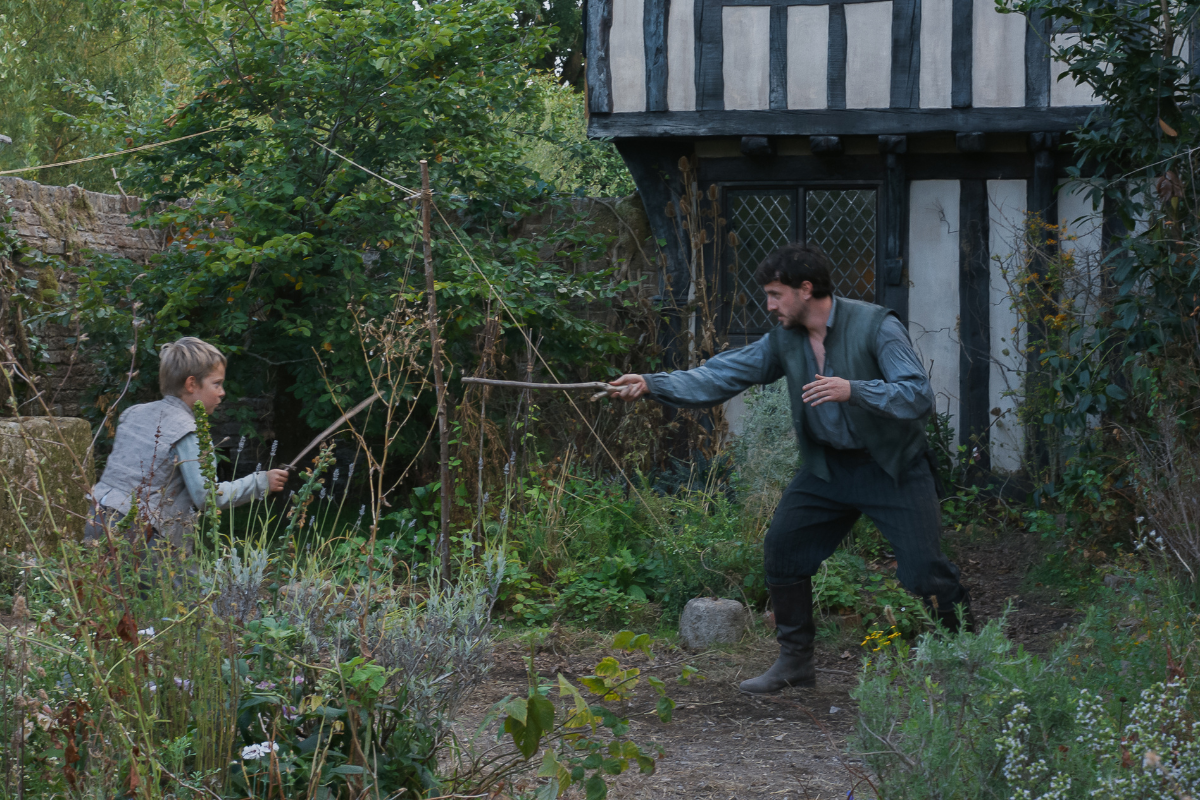Lessons from the Film: Unpacking ‘Black Bag’
‘Black Bag’ is a sexy cerebral thriller – we thought we’d interrogate what makes this sleek and stylish film so satisfying.
The new spy drama Black Bag uses as its title a term for things no one can discuss—a tricky business for married British intelligence agents when one of them makes a shortlist of possible traitors.
Happily, we’re under no such restrictions. Directed by Oscar-winner Steven Soderbergh (Traffic), Black Bag is a sexy cerebral thriller, with fewer action hijinks than 2005’s Mr. and Mrs. Smith but plenty of subtext, tension, and wit. Think 2011’s Tinker Tailor Soldier Spy with more flirting.
Credit that to stars Michael Fassbender and Cate Blanchett and veteran screenwriter David Koepp (Jurassic Park, Mission: Impossible, the Soderbergh projects Kimi and Presence). With Black Bag holding a 97 percent “Fresh” rating on RottenTomatoes.com, we thought we’d interrogate what makes this sleek and stylish film so satisfying.
(Caution: Only mild spoilers ahead.)
It Starts with a Clear Objective
From the James Bond franchise to more recent Mission: Impossible films, espionage tales often start with a bang—an action sequence that revs up the audience and introduces the hero. Black Bag is quieter in that regard, focusing on George Woodhouse (Fassbender, The Agency), a lie-detection expert, trying to suss out whether his wife, Kathryn St. Jean (Blanchett, Disclaimer), stole a top-secret device.
Befitting George’s reserve, a Steadicam follows him in medium closeup from behind as he threads through London’s late-night streets, enters a nightclub, and winds downstairs through a neon-lit dance floor. He catches the eye of a colleague, Philip Meacham (Gustaf Skarsgård, Oppenheimer), who leads George back outside to present his marching orders.
The filmmaking itself holds our interest until Meacham spells out what’s happened, handing George a slip of paper: Something valuable is missing, there’s a traitor afoot, and five suspects, including Kathryn. George needs to find out who has this and fast.
It Introduces Its Characters Well
Black Bag is rich with character touches right from the start. Talking with Meacham, George first says he’ll find the traitor within two weeks. Meacham points out that the missing device, codename Severus, will kill thousands if deployed.
“OK, one week,” George says.
Here’s a character confident in his skills and seemingly unsympathetic toward his spouse—or is he?
George decides to size up the suspects over dinner at his and Kathryn’s home. He chops and minces with ease, warning his wife, “Avoid the Chana Masala. Contains a healthy amount of DZM-5.”
Blanchett plays Kathryn with wry charm, gliding through the kitchen and dining room like Katharine Hepburn. “Darling, you may not dose our guests,” she says, unsurprised. She also doesn’t push back that hard.
Cool and unflappable, she counts off who’s coming. “Data scraper, two agents, and the in-house shrink. … It’s been a while since we had a traitor to dinner. At least knowingly.”
As for the guests, the film doesn’t introduce them as they walk in the door but rather at a pub beforehand. James (Regé-Jean Page, Dungeons & Dragons: Honor Among Thieves), one agent, is dating the psychiatrist, Zoe (Naomie Harris, The Wasp). The other agent, Freddie (Tom Burke, Furiosa: A Mad Max Saga), is dating the data analyst, Clarissa (Marisa Abela, Industry).
The four wanted to meet before dinner because George and Kathryn intimidate them. Their dynamic over these few minutes—Freddie is late, for starters—sets up their personalities for the evening and events ahead.
It Orients Viewers Throughout the Action
Black Bag is talky, but it zips along through an hour and 33 minutes. While the plot becomes appropriately knotty, the film also orients viewers in a few ways.
Take that DZM-5 in George’s dinner recipe. Spy films have their share of jargon, but Kathryn’s reply offers all the context we need to understand what this is without stumbling over exposition. The same goes for the term black bag and Severus. Context fills in the audience until a character does organically.
Aside from cinematography and editing that teases George’s thoughts and plot points, the film uses supers to share what day of the week action occurs—important given his timeline of a week to find the traitor.
It Maintains a Theme
Trust, especially in a relationship, is the film’s theme—something that interests Koepp and Soderbergh far more than recovering Severus. As convenient as it is for the traitor to land among three couples, this highlights the contradictions that weigh upon George’s mind and his and Kathryn’s relationship.
When George meets Meacham in the opening moments, Meacham mentions relationship troubles, having cheated on his significant other. George tells him some things are better swept under the rug, although he also suggests that Meacham’s sweetheart might be less angry if he went home instead of hanging out at the nightclub.
RELATED: What Happens in the Field, Stays in the Field: David Koepp Discusses His New Thriller ‘Black Bag’
Later, Kathryn confides to Zoe that the agency’s boss (Pierce Brosnan, The Unholy Trinity) considers her devotion to her marriage a “professional weakness.” Kathryn is supposed to open up during these sessions, but she’s coy.
Clarissa flat-out wonders how a relationship can survive under such subterfuge. As she says in the trailer, “When you can lie about everything, when you can deny everything, how do you tell the truth about anything?”
It Uses Subtext
It’s no surprise that Black Bag uses subtext well, much of it in the banter between George and Kathryn.
For instance, as she dresses for that early dinner, Kathryn senses a thoughtful George in their bedroom doorway. “I can feel when you’re watching me,” she says. “I like it.”
This line implies more than the moment, especially when George checks out a surveillance feed later. “I watch her, and I assume she watches me,” he explains.
George also goes fishing to think, first after that dinner at the couple’s home. He casts out his line and slowly winds it back, the clicks of the reel playing over thoughts of Meacham and each guest around the table.
When he thinks of Kathryn, the line snaps.
About a day later, he’s made dinner again, featuring fresh trout. Kathryn praises the dish. “Quite a difficult catch,” she says.
Indeed.
Valerie Kalfrin is an award-winning crime journalist turned essayist, film critic, screenwriter, script reader, and emerging script consultant. She writes for RogerEbert.com, In Their Own League, The Hollywood Reporter, The Script Lab, The Guardian, Film Racket, Bright Wall/Dark Room, ScreenCraft, and other outlets. A moderator of the Tampa-area writing group Screenwriters of Tomorrow, she’s available for story consultation, writing assignments, sensitivity reads, coverage, and collaboration. Find her at valeriekalfrin.com or on Twitter @valeriekalfrin.







